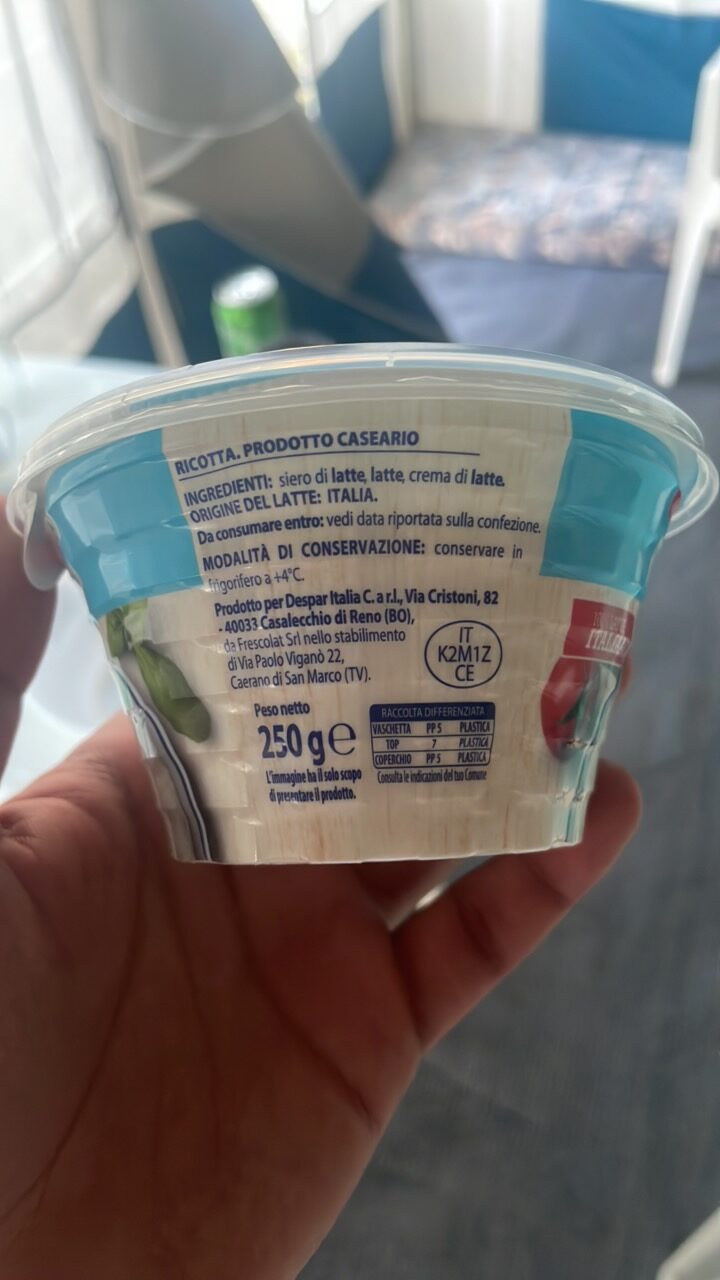
Barcode: 8001300653127
ricotta
HALAL
📝 Reason: All ingredients of ricotta (‘siero di latte’, ‘latte’, ‘crema di latte’) are derived from milk, which is Halal as per Islamic jurisprudence and Fiqh (Quran 16:66, IFANCA and Halal Food Authority). Ricotta typically does not include any haram or doubtful ingredient (like pork enzymes, alcohol, or non-Halal animal sources) unless added separately. With no haram E-codes or doubtful animal-derived enzymes, ricotta as described is Halal.
🏷️ Category: Dairy
📄 Certificates: 250 Ge, Vegetarisch
Ingredients:
Details
Understanding the Halal Status of Ricotta
Ricotta, a popular dairy product known for its creamy texture and rich flavor, often sparks questions regarding its Halal certification. Fortunately, we can confirm that ricotta is Halal. This guide will delve into why ricotta is Halal and explore its key ingredients.
What Makes Ricotta Halal?
The Halal status of ricotta is primarily based on its ingredients. According to Islamic jurisprudence and the principles outlined in the Quran (Quran 16:66), all ingredients utilized in ricotta—namely, siero di latte (whey), latte (milk), and crema di latte (cream)—are derived from milk, making them Halal. We will break down each ingredient to ensure clarity.
Ingredients Breakdown
- Siero di latte (Whey): Whey is a byproduct of milk, typically obtained from cow’s milk. It is generally Halal as long as no haram additives are included, and it is not mixed with non-Halal animal enzymes. The Halal Food Authority and IFANCA provide guidance that supports the Halal status of whey, affirming that it is safe for consumption by those observing Halal dietary laws. Learn more about Halal dairy products.
- Latte (Milk): Ricotta is made using whole milk derived from Halal animals, typically cows or buffalo. The milk itself is inherently Halal provided it comes from Halal-certified sources and contains no prohibited substances that could render it non-Halal. Explore more on Halal milk sources.
- Crema di latte (Cream): This is essentially milk fat that has been separated from milk, often used to create richer flavors in dairy products. As long as the cream is derived from Halal animals and isn’t mixed with non-Halal substances, it is also Halal. For more detailed guidelines, visit Halal Food Authority.
The Importance of Halal Certification
In addition to the ingredients being Halal, the entire production process of ricotta plays a critical role in maintaining its Halal status. Many manufacturers today prioritize transparency and adhere to Halal certification processes. Brands that are mindful about their ingredients and sourcing practices often seek certification from recognized Halal organizations, ensuring that consumers can trust their products.
Conclusion
In summary, ricotta is Halal due to its basic ingredients—whey, milk, and cream—which are all derived from Halal sources. With no haram E-codes or questionable animal-derived enzymes present, ricotta stands as a safe choice for those seeking Halal dairy options. Whether you’re incorporating it into dishes or enjoying it on its own, you can confidently consume ricotta knowing it aligns with your dietary requirements.
Certifications and Labels
The ricotta you choose might also display certifications such as ‘250 Ge’ and ‘Vegetarisch’, which indicate compliance with strict dietary standards. Always check for these labels to ensure you’re getting a product that meets your Halal requirements.
